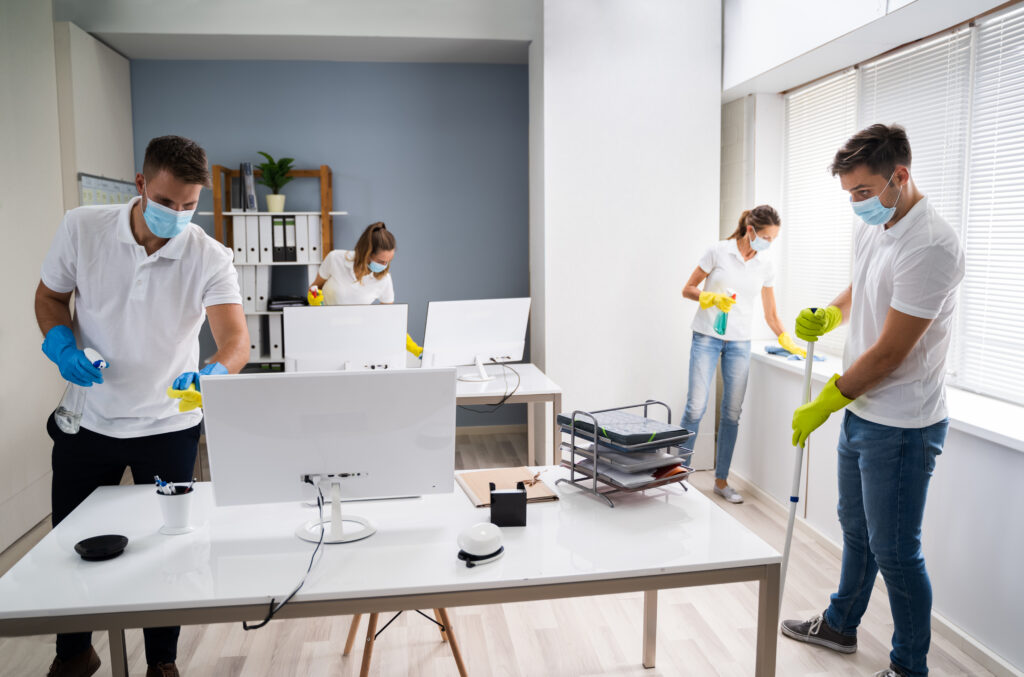Look, I’ve been working in medical offices for fifteen years, and I can tell you that cleaning is one of those things you don’t think about until it becomes a big problem.
We had this small practice in Newark, and for the first couple years we just used whoever cleaned the rest of the building. Seemed fine, saved money, everybody was happy.
Then one day a patient complained to the health department about our restrooms being gross, and suddenly we had inspectors crawling all over the place. Turns out our cleaning wasn’t even close to what’s required for medical facilities. The fines sucked, but what really hurt was having to explain to patients why we were temporarily closed for “facility improvements.”
That’s when I learned that medical office cleaning isn’t just regular cleaning with fancier disinfectant. It’s a whole different thing with its own rules, procedures, and paperwork. Lots of paperwork. In New Jersey, they don’t mess around with medical facility standards, and neither should you.

Professional Office Cleaning Services.
The biggest shock was finding out how much stuff I didn’t know. Like, did you know that different disinfectants have to sit on surfaces for different amounts of time to actually work? Or that medical waste has to be handled by people with special training and certifications? I sure didn’t. Our regular cleaning crew was basically just making things look clean without actually making them safe.
Why It Actually Matters
Here’s the thing nobody tells you – medical offices are basically germ factories. You’ve got sick people coming in all day, touching everything, coughing and sneezing in your waiting room. Then you’ve got people with compromised immune systems sitting in the same chairs an hour later. If your cleaning isn’t on point, you’re basically running a disease exchange program.
I’ve seen practices get shut down because someone picked up a serious infection that got traced back to poor cleaning protocols. The liability alone can kill a small practice. Insurance companies don’t want to hear that you were trying to save money on cleaning when they’re dealing with a lawsuit.
The state inspectors know what to look for too. They’ll check your cleaning logs, ask to see disposal records for medical waste, and quiz your staff about protocols. If you can’t produce the right documentation or your procedures aren’t up to standard, you’re in trouble fast.
But even beyond the regulatory stuff, patients notice everything. They’re looking for reasons to trust you or not trust you, and cleanliness is one of the first things they evaluate. A dirty office makes people assume you’re sloppy about everything else too.
The Staff Situation
Before we got professional cleaning, our nurses were constantly stressed about whether things were clean enough. They’d spend extra time sanitizing between patients because they weren’t confident in our cleaning procedures. That’s time they should have been spending on patient care, not worrying about whether the exam table was properly disinfected.
Once we switched to a professional medical cleaning service, everyone relaxed. The nurses could focus on nursing instead of constantly second-guessing the cleanliness of everything they touched. Patient flow improved because staff weren’t doing double cleaning between appointments.
And honestly, people stopped getting sick as much. Before, it seemed like someone was always out with whatever bug was going around the office. Better cleaning protocols reduced that significantly, which meant better staffing consistency and lower costs for covering sick days.
The Money Part
Professional medical cleaning costs more than regular cleaning, no question. But when you factor in the potential fines, liability issues, and lost productivity from staff illness, it pays for itself pretty quickly. We learned this lesson the expensive way.
The documentation alone is worth the cost. Professional medical cleaning services provide all the logs and records you need for inspections. They handle medical waste disposal according to state regulations. They know which products to use and how to use them properly. Trying to manage all that yourself is a nightmare.
Plus, patients notice the difference. When your office consistently looks and smells clean, people feel better about being there. They’re more likely to keep appointments, refer friends, and leave positive reviews. In a competitive market like New Jersey, that stuff matters for your bottom line.
What Actually Works
Find a cleaning service that specializes in medical facilities and understands New Jersey regulations. Don’t try to save money by using a general cleaning company and hoping they can figure it out. They can’t, and you’ll pay for it later.
Make sure they provide proper documentation and training records. The state wants to see proof that your cleaning staff knows what they’re doing and follows appropriate protocols. Professional services handle this automatically.
Check their insurance and certifications. Medical facility cleaning involves handling biohazardous materials and using specialized chemicals. You want people who are properly trained and insured for this type of work.
Ask for references from other medical practices in your area. A good medical cleaning service should have plenty of local clients who can vouch for their work and compliance record.
The Reality Check
Medical office cleaning in New Jersey isn’t optional or negotiable. It’s a basic requirement for operating a safe, compliant practice. You can try to cut corners, but you’ll end up paying more in the long run through fines, liability issues, or lost business.
Do it right from the start. Find professionals who understand medical facility requirements and let them handle it properly. Your staff will be happier, your patients will feel safer, and you’ll sleep better knowing you’re not risking your practice over something as basic as keeping the place clean.

